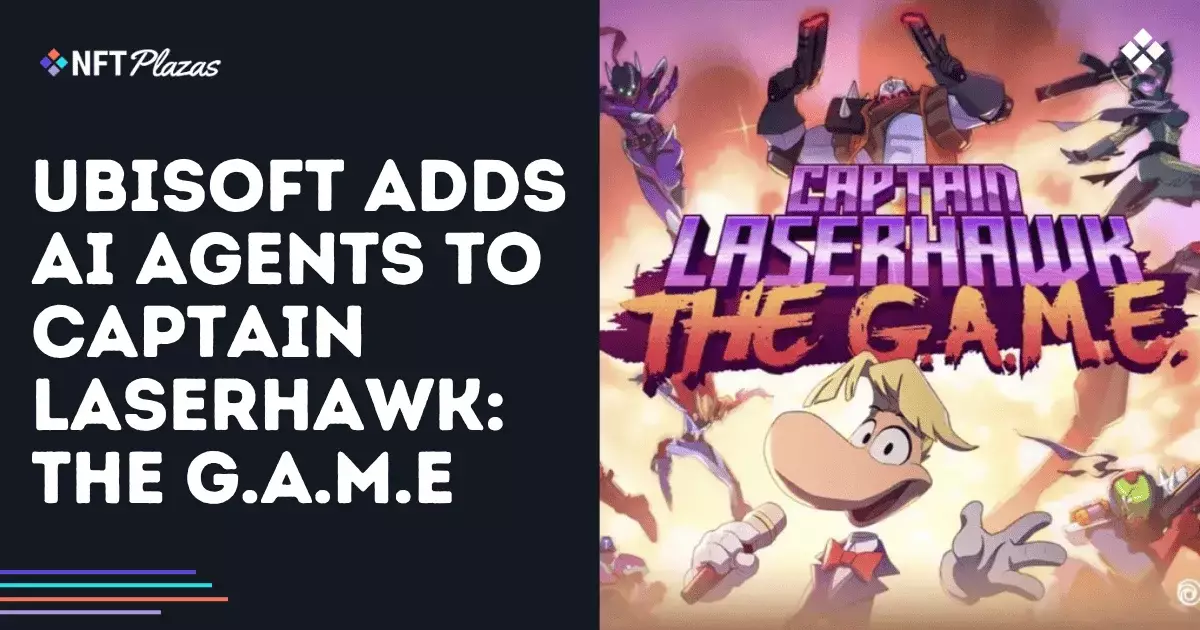The recent integration of AI agents into Ubisoft’s blockchain-based game, Captain Laserhawk: The G.A.M.E., signals a bold but questionable shift toward autonomous decision-making in gaming environments. While at face value, this development promises continuous gameplay and innovative governance, it fundamentally undermines the core principle of player agency. The use of AI agents that can vote, analyze proposals, and even interpret player intent suggests a future where human players become passive spectators in their own virtual worlds. This shift raises critical concerns: Are we sacrificing genuine human interaction for technological convenience? Does the delegation of decision-making to artificial entities diminish the richness of player experience, or merely serve as a veneer for corporate control?
Historically, gaming has thrived on the premise that players have complete control—an empowerment echoing the democratic ideals of choice and agency. This move by Ubisoft risks eroding those foundations, replacing active participation with automated governance that could easily be manipulated or misused. AI agents, even when constrained by predefined traits, run the danger of reducing players’ role to that of mere spectators or subjects of algorithmic decisions, ultimately alienating those seeking authentic engagement.
The Illusion of Continuity and the Risks of Automation
Ubisoft’s implementation of AI agents in Captain Laserhawk is marketed as a way to ensure seamless gameplay even during player inactivity. On the surface, this might appear as a practical innovation—allowing progress to continue without requiring constant input. However, this convenience masks a deeper concern: the normalization of automatic decision-making behind the guise of personality traits derived from NFTs. The game ties uniquely-identified AI agents to individual NFT characters, which are supposed to reflect personas, values, and temperaments. But is it truly meaningful to encode such nuanced human traits into faceless digital proxies that act independently?
There is an inherent danger in allowing AI to operate on behalf of players in governance decisions tied to blockchain records. Blockchain’s transparency and immutability are often lauded for security, but when combined with autonomous AI, they could create a situation where decisions are made and logged without sufficient human oversight. This potentially opens doors for manipulation, especially if these AI agents are used to influence collective decisions in a blockchain environment, which itself is susceptible to centralization and exploitation. Ubisoft’s approach to logging decisions on Aleph Cloud might seem like an effort towards transparency, but it could just as easily serve as a record of AI-driven choices that bypass human scrutiny.
The Control Paradox: Balancing Autonomy with Accountability
A central premise of Ubisoft’s AI agents is that players can override decisions or let the AI act based on predefined traits. Yet, this apparent autonomy is fragile. When decision-making becomes algorithmically driven, the lines between human intent and machine interpretation blur. If AI agents begin influencing game outcomes or governance processes significantly, players risk losing control over their virtual destiny. This power shift raises questions about accountability: who bears responsibility for decisions made—players or code?
Furthermore, by incorporating AI agents into governance layers, the game morphs into a testing ground for broader societal concerns around automation and autonomy. It exemplifies how corporate entities could leverage AI to subtly shift authority from individual users to automated systems. Despite Ubisoft’s assurances of moderation and safety, history offers numerous examples where AI systems, even carefully regulated ones, veer into unintended behaviors, especially as they adapt over time. The prospect of AI making complex moral or strategic decisions—albeit within constraints—is risky and warrants skepticism, not blind optimism.
Implications for the Broader Gaming Industry
Ubisoft’s experiment could influence industry standards—paving the way for a future where AI is embedded deeply into game mechanics, governance, and social interaction. While some enthusiasts may celebrate this as innovation, it is more prudent to see it as a dangerous flexibility that might erode traditional notions of gaming integrity and communal interaction.
Let’s not forget that games serve as social spaces, repositories of shared stories, and arenas of collective decision-making. Shifting too much authority to AI could fracture these communities, creating virtual environments where human voices are drowned out by autonomous systems. As game developers seek new ways to monetize and streamline their offerings, they must also recognize that ceding too much control to AI risks commodifying player experiences and diminishing the human element that makes gaming meaningful.
Ubisoft’s bold foray into AI-led governance in gaming ultimately exposes a troubling trend: the prioritization of technological novelty over genuine player empowerment. While the promise of seamless, autonomous gameplay might seem enticing, it is fraught with peril. The industry must critically examine whether such innovations serve players’ best interests or merely facilitate corporate control masked as progress.

